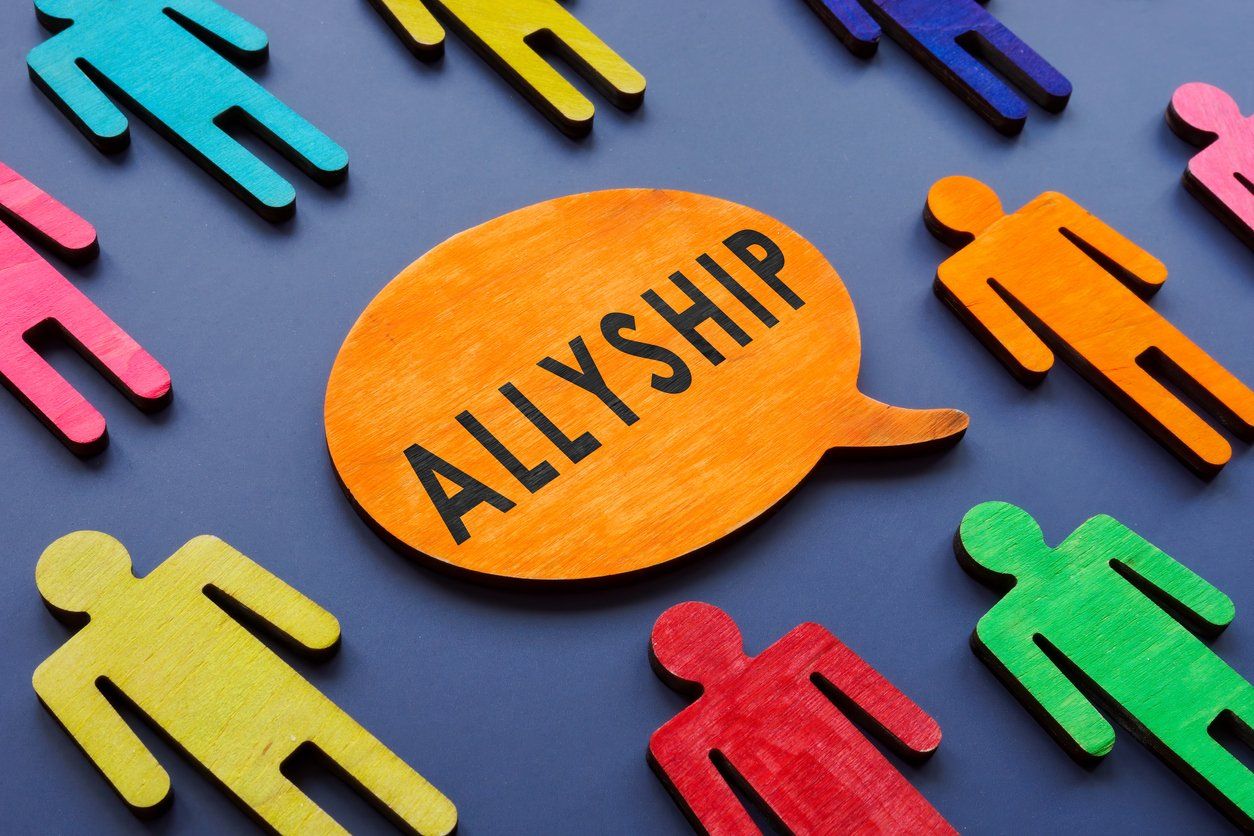Being an Ally Requires Speaking Up

"Courage matters more than niceness", says Austin Channing-Brown. She speaks up for justice, for diversity, equity, and inclusion. She believes that everyone has someone to offer and that all of us deserve to have opportunities to feel valued and appreciated. She believes that it is our responsibility to help others be positioned to contribute to the world around them rather than being continually sidelined, marginalized, and battered.
However, in our society today there is unspoken and spoken pressure to just get along - to just keep quiet and not rock the boat. Yet, when we turn a blind eye to inappropriate behaviors in our homes, workplaces, and communities, we are allowing people to be hurt and our culture to erode. As Channing-Brown says, "Speaking up for others, for orderly meetings, for the bullying to stop, is disrupting the 'safe' norm". When we turn a blind eye to disrespectful words and hurtful behaviors, we may be maintaining social and physical safety at the moment, but our tolerance silently gives others permission to continue, and even increase, their negative actions.
It's not okay to put up with ineffective and disrespectful behavior. Yet, it takes courage to go against the norm and do what is right. Being 'nice' is often not being kind. People are often described as nice when they are agreeable; they are stuck in neutral and don't offend or argue. On the other hand, being kind is showing that you care about others, that you have their best interests in mind and you support them towards a more fulfilling life.
In her book, Radical Candor, Kim Scott shares that due to having a 'nice' culture she had to close her small business. Nobody in her company spoke up when an employee did not do their work well; rather than offend the underperformer, they redid the work. Not having tough conversations with a pleasant employee wasted everyone's time, became frustrating for all, and prevented the business from being viable.
Channing-Brown encourages everyone to be allies in making a difference in organizational and community diversity. Marginalized people generally don't have the connections and resources to influence systemic change. Causes led by one person rarely make meaningful headway towards changes in organizational systems in government, businesses and non-profits, neighborhoods or families. Allies are needed in the cause. Society will benefit from strong allyship. (This is a new word for me, too.)
"Allyship is a life-long process of building supportive associations and relationships based on trust, consistency, and accountability with marginalized individuals and groups. An ally actively promotes and aspires to advance a culture of inclusion through intentional, positive, and conscious efforts." Do you care enough about living in a strong, vibrant community to practice allyship in your organization or community? Do you have the courage to speak up even when it means upsetting the unspoken norm?
When you see someone being marginalized due to race, gender, education, economic status, disability, life experience, etc., I encourage all of us to have the courage to speak up for them. Go to bat for them to be considered and supported. When you see someone speaking up for the marginalized, support them. Speak up in the moment. Go beyond words and take action. Ask others to join the cause of creating organizations and communities where all people have opportunities to have a meaningful life.


